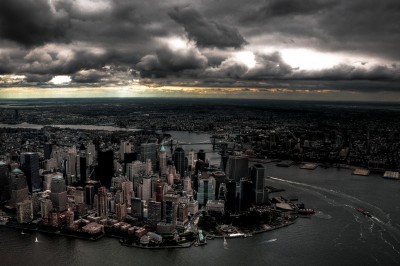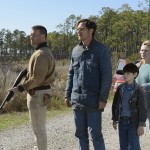
From monstrous floods to fiery flames, discussion of the apocalypse in modern media has been nothing short of dramatic. The idea of an apocalyptic end has amounted to visions of terror over the years. Holiday cheer was plagued by the idea of an impending end in December 2012, which was the year of the assumed apocalypse. Backed by a Hollywood blockbuster, this scare was fueled by the predictions supposedly made by misconceptions in the Mayan calendar.
Just over three years later, this doomsday dilemma resurfaced Thursday in the form of an all-reaching panel at Boston University’s Florence and Chafetz Hillel House. Students saw a diverse congregation of faculty offer its expertise Thursday on the long-argued topic of uncertainty.
Leading the conversation among her peers, Rosella Cappella, a professor in the College of Arts and Sciences’ Department of Political Science, called upon her experience with national security and economy.
“How close are we to the end of the world?” Cappella said. “Well, the Federation of Atomic Science has this atomic clock, also known as the Doomsday Clock. It’s a political science-type of perspective that gives us an estimate in minutes. And we are, from a nuclear war perspective, the closest we’ve been since the ‘50s.”
However, Cappella argued that the world’s history of prolonged wars is a stronger implication of our end than nuclear weapons themselves.
“I’m personally on the conventional war side,” she said. “Nukes are a weapon of the weak. They’re defensive deterrents at best and are, in fact, argued in my field to be actually quite stabilizing in the world system.”
Lawford Anderson, a professor in CAS’ Department of Earth and Environment, steered the conversation toward a less theoretical discussion on how the earth will reach its demise.
“I think the whole focus on the end of the world is too focused on us,” he said. “We’ve hardly been here as a species. Life had been so simple until the last billion years.”
Anderson said there should be a focus on the cycle of extinction exemplified by the earth’s history.
“There have been numerous times of great extinction on Earth,” he said. “The world has simply ended entire species, geneses and families over and over again. For most of Earth’s time, humans were not here. And for most of human’s time, Earth didn’t know we were here. As we deplete resources, fresh water, fresh air, we’re experiencing our own extinction right now.”
Anderson said human impact on the planet is causing this reality to approach more rapidly than expected.
“There are plenty of ways this natural world can hurt us, which is why we need to be better students of this natural world around us,” Anderson said.
Regarding the possible end to the universe as a whole, Alan Marscher, a professor in CAS’ Astronomy Department, contributed his own theories.
“We’ve discussed up to this point how the humans can become extinct, but outside of this, most of the universe is going through changes that could be catastrophic,” Marscher said. “With accelerated expansion, the stars will eventually burn out, causing the universe to become a cold remnant of its once-vibrant existence.”
However, Marscher said this possibility is likely trillions of years ahead of our time, and a secondary theory seems more probable.
“In about five million years, it’s likely that the sun will use up all its hydrogen in its core and expand,” he said. “The sun will then explode into a supernova and engulf the earth.”
Rabbi YD Schwartz, who works at BU Hillel, offered a religious view of what the apocalypse entails.
“There’s both a good and bad way in terms of thinking about the end,” he said. “In the ‘good way,’ we all find world peace, build a temple and live out our lives. But there have been apocalyptic prophecies that speak of combining the good way and the typical notion of mass extinction together.”
Concluding this panel, the speakers held a Q&A session, in which the professors’ attempts to answer the audience led to stemming curiosities and more questions for each other. Afterward, several students also weighed in on the possibility of an apocalypse and the points the professors made.
“The apocalypse is definitely always a possibility,” said Emmanuel Olonilua, a junior in the Questrom School of Business. “I can’t say I’ve ever really believed in it explicitly or that I think it will happen, but the issues the professors brought up are still completely valid. I don’t know that we’ll ever have an apocalypse, at least not the way we think … I think the apocalypse we would face would be more gradual.”
Ryan Wong, a freshman in the College of Arts and Sciences, said he finds the apocalypse “hard to believe,” but if it were to happen, it would be a nuclear war.
“I think people will be responsible when [the apocalypse happens],” he said. “I think any apocalypse is hyped up, like in 2012. For me, that didn’t have a big impact.”
Tatiana Morales, a freshman in the College of General Studies, said nuclear weapons should be a last resort when dealing with the apocalypse.
“I’m pretty sure there is something like, ‘If you use nuclear weapons, you’ll both get destroyed,’” she said. “I remember that in history class. But all the movies make it seem like it could happen. I think it kind of enforces it in a way. It kind of gives it an idea, but it doesn’t make people think that it will happen in your lifetime.”
Kaitlyn Locke contributed to the reporting of this story.


